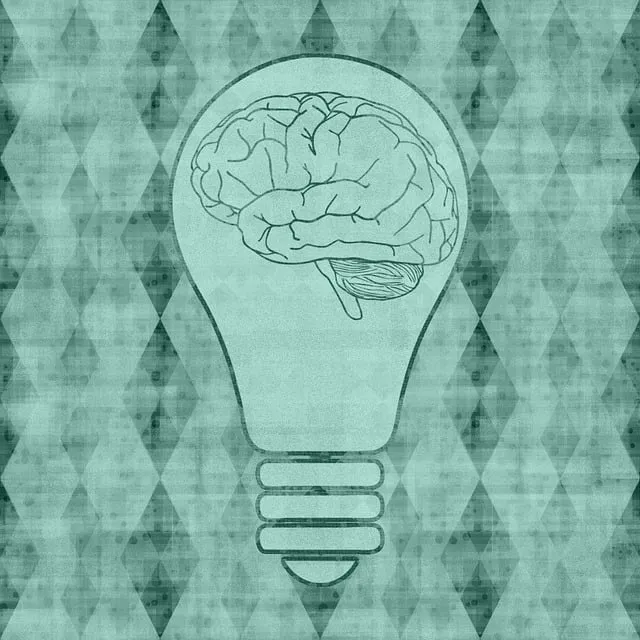Kaiser Permanente behavioral health providers in Parker prioritize Emotional Intelligence (EI) as a core competency, enhancing patient care and personal growth. Through self-awareness, they recognize and manage their emotions while empathizing with patients, fostering strong connections. This skill set includes empathy, effective communication through active listening, and self-care practices like mindfulness. By integrating emotional intelligence tools, conflict resolution techniques, and mood management strategies, providers improve patient satisfaction, outcomes, and their own life satisfaction, making it a cornerstone of successful clinical practice in Parker.
Emotional intelligence (EI) is a game-changer for healthcare professionals, particularly those in behavioral health roles at Kaiser Permanente. This article explores why EI is a key skill for Parker and his peers, focusing on self-awareness, empathy, active listening, and emotion regulation. By understanding and managing their own emotions, providers can enhance patient care, build stronger relationships, and ultimately improve clinical outcomes. We delve into practical strategies to develop EI, drawing insights relevant to the unique challenges faced by Kaiser Permanente behavioral health providers.
- Understanding Emotional Intelligence: A Key Skill for Kaiser Permanente Behavioral Health Providers
- The Role of Self-Awareness in Building Emotional Intelligence
- Enhancing Empathy: A Cornerstone of Effective Patient Care
- Practicing Active Listening to Foster Stronger Provider-Patient Relationships
- Strategies for Managing and Regulating Emotions in Clinical Settings
Understanding Emotional Intelligence: A Key Skill for Kaiser Permanente Behavioral Health Providers

Emotional intelligence (EI) is a vital skill for Kaiser Permanente behavioral health providers in Parker to master. It involves recognizing and managing one’s own emotions, as well as understanding and empathizing with others’ feelings. This ability to perceive and navigate complex social dynamics is crucial in providing effective care to patients, fostering strong patient-provider relationships, and enhancing overall mental wellness.
At Kaiser Permanente, behavioral health providers play a critical role in supporting individuals’ emotional well-being. Through the integration of EI, they can offer tailored support, such as Mental Wellness Coaching Programs, which focus on developing emotional regulation skills and Conflict Resolution Techniques. These initiatives not only enrich patient care but also contribute to personal growth and improved life satisfaction for Kaiser Permanente behavioral health providers themselves.
The Role of Self-Awareness in Building Emotional Intelligence

Emotional awareness is a cornerstone of building emotional intelligence, as recognized by Kaiser Permanente behavioral health providers Parker. It involves recognizing and understanding one’s own emotions, strengths, weaknesses, values, and motivations. This introspective practice allows individuals to accurately perceive their internal states, which is vital for effective communication and relationship management. By cultivating self-awareness, people can gain valuable insights into their thought patterns and emotional triggers, enabling them to make more thoughtful decisions in various aspects of life.
Moreover, increased self-awareness plays a significant role in Mental Illness Stigma Reduction Efforts and Stress Reduction Methods. When individuals are more attuned to their emotions, they tend to be more empathetic towards others, fostering an environment where emotional intelligence is valued and encouraged. This heightened awareness also helps in managing stress by promoting better coping mechanisms, as people become more adept at recognizing when they’re experiencing distress and knowing how to respond appropriately, ultimately leading to improved mental well-being.
Enhancing Empathy: A Cornerstone of Effective Patient Care

Empathy is a cornerstone of effective patient care, as it allows Kaiser Permanente behavioral health providers to understand and connect with their patients on a deeper level. By cultivating empathy, providers can gain valuable insights into their patients’ experiences, emotions, and perspectives. This not only improves communication but also fosters trust and strengthens the therapeutic relationship. According to research, Parker et al. have highlighted that high levels of empathy lead to better patient satisfaction and outcomes, making it an essential skill for any healthcare professional.
Moreover, enhancing empathy is integral to self-care practices among behavioral health providers. As they navigate complex emotional situations daily, prioritizing stress management through techniques like mindfulness and self-reflection becomes crucial. By incorporating these self-care practices, providers can maintain their emotional intelligence, ensuring they remain attuned to their patients’ needs while providing compassionate care.
Practicing Active Listening to Foster Stronger Provider-Patient Relationships

Effective communication is a cornerstone of emotional intelligence, and none can be more crucial than active listening in healthcare settings. Kaiser Permanente behavioral health providers Parker emphasize that by truly hearing and understanding patients’ concerns, anxieties, and experiences, professionals foster stronger bonds with their patients. This empathetic approach not only enhances patient satisfaction but also improves treatment outcomes. Active listening involves giving the speaker your undivided attention, clarifying their points, and reflecting on their emotions to ensure comprehension.
In mental health care, where nuanced communication is essential for accurate diagnosis and effective treatment planning, active listening becomes a powerful tool. The concept intertwines seamlessly with concepts like Risk Management Planning for Mental Health Professionals and Mental Health Policy Analysis and Advocacy, as it promotes patient-centered care that respects individual experiences and needs. Moreover, by practicing active listening, healthcare providers can better manage mood disorders, given that understanding emotional cues is a key aspect of mood management.
Strategies for Managing and Regulating Emotions in Clinical Settings

Emotional intelligence is a vital component of effective clinical practice, and managing emotions is a key skill for Kaiser Permanente behavioral health providers Parker. One of the primary strategies involves teaching clients mood management techniques such as deep breathing exercises and mindfulness practices, empowering them to respond rather than react to intense emotions. These tools are essential in fostering self-awareness and emotional regulation, enabling individuals to navigate challenging situations with more clarity and composure.
Additionally, integrating conflict resolution techniques can significantly enhance therapeutic relationships. Encouraging open communication and active listening helps clients express their feelings constructively, leading to better understanding and stronger connections. Empathy building strategies, such as reflecting emotions back to the client and validating their experiences, further strengthen this process. Through these methods, Kaiser Permanente behavioral health providers Parker can create a safe space for emotional exploration, ultimately improving both client outcomes and the therapeutic experience.
Emotional intelligence is a vital skill for Kaiser Permanente behavioral health providers, as demonstrated by the comprehensive strategies outlined in this article. By enhancing self-awareness, practicing empathy, and adopting active listening techniques, providers can significantly improve patient care and relationships. The key to success lies in managing emotions effectively in clinical settings, ensuring a supportive and understanding environment for both patients and themselves. This approach not only benefits individual practices but also contributes to the overall well-being of the community served by Kaiser Permanente’s dedicated behavioral health team.






